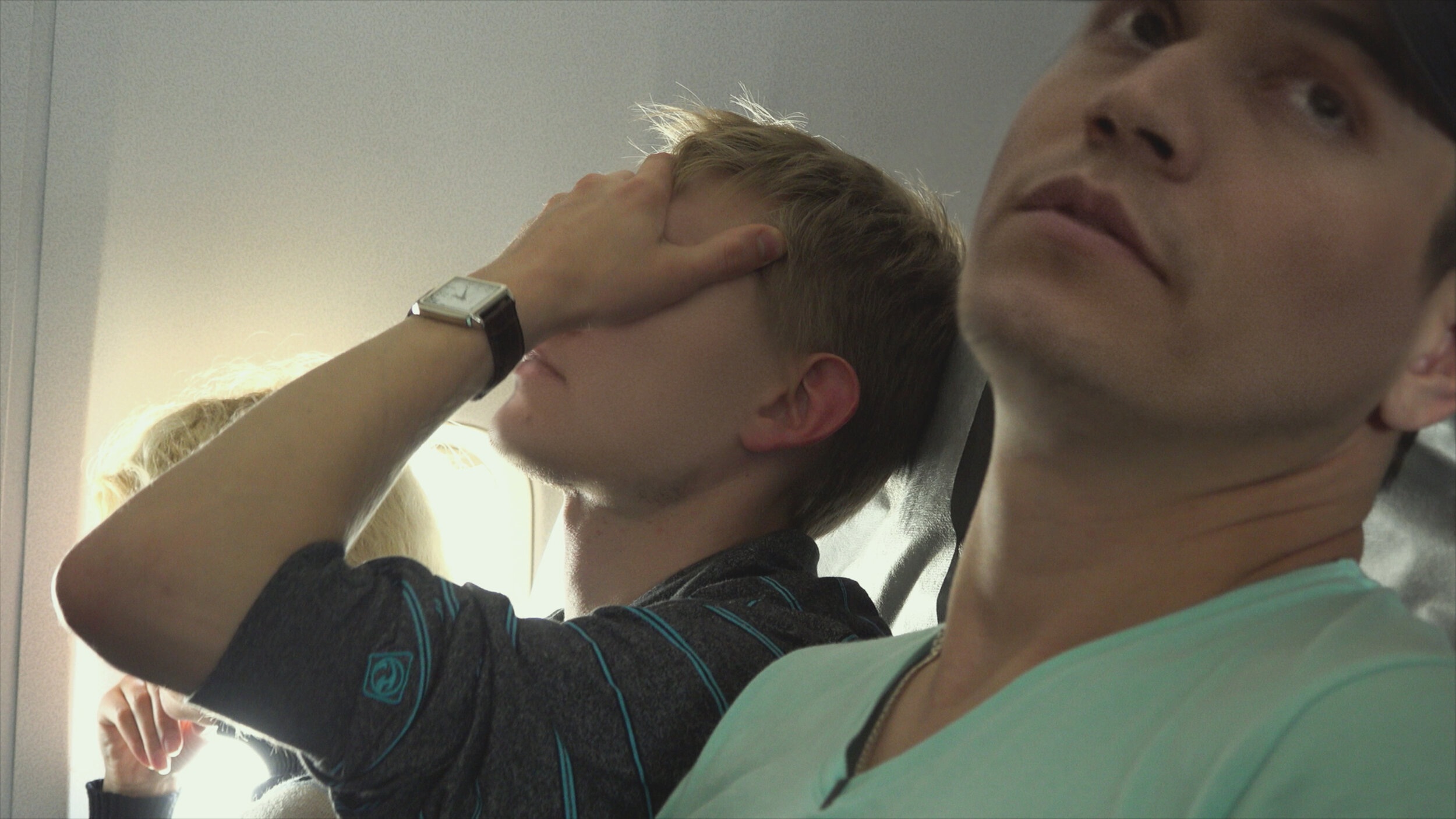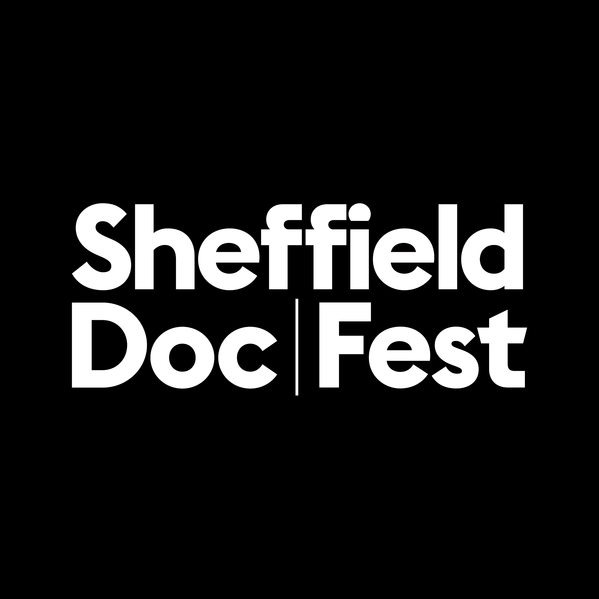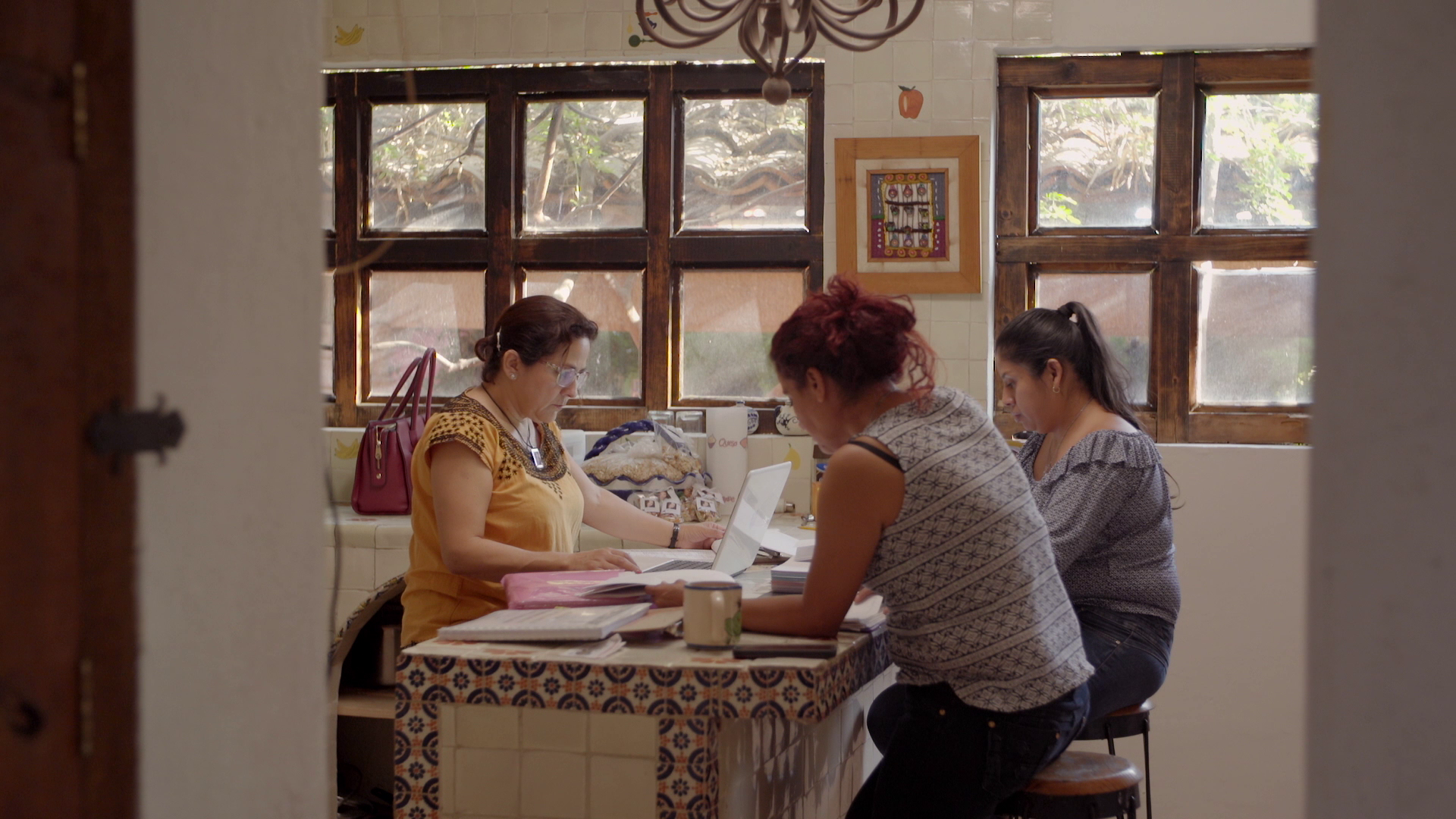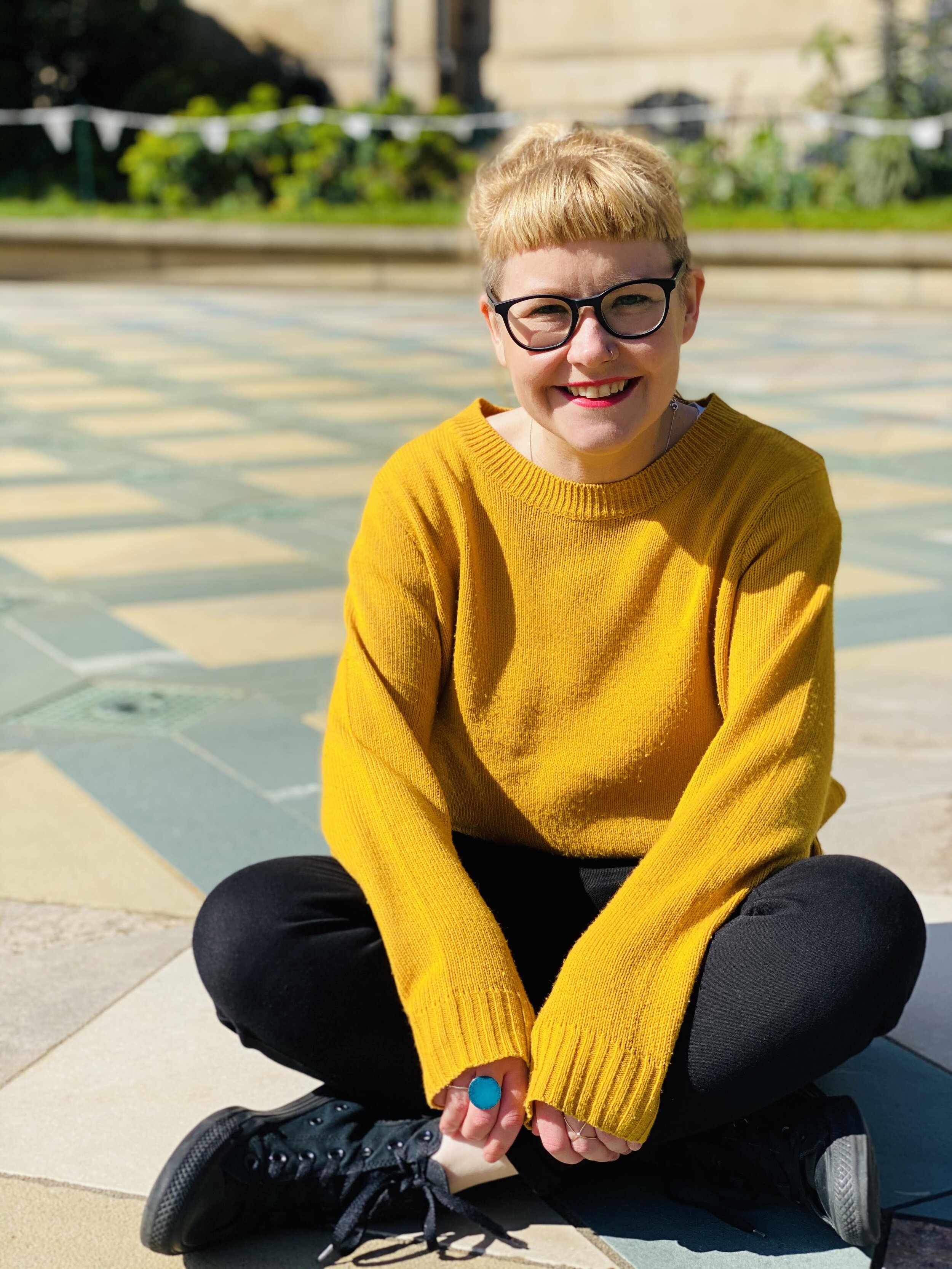Sheffield Doc/Fest 2020
Interview by Hallam Doc/Fest Team
with
Deputy Director Melanie Iredale
Emmie McFadden
Hallam Doc/Fest Team Interview with Sheffield Doc/Fest Deputy Director Melanie Iredale
Thank you very much, Melanie, for taking time out from what I can only imagine is a very busy time for you right now. The Hallam Doc/Fest Team have been following our own schedule from the Doc/Fest official programme, watching lots of docs and meeting up twice a day to discuss them. We have some really interesting questions for you that we’re going to ask one by one.
Amber Allport
Q. How do you go about choosing the themes for the Doc/Fest strands? Are they based on things that are happening around the world?
A.We launched new strands for this year. Usually a festival establishes a series of strands and then keep them going for a period of years and they become known and synonymous with that festival. We appointed a new festival director at the end of last year called Cintía Gil and she set new strands for going forwards: Into the World, Ghosts & Apparitions, Rebellions, Rhyme & Rhythm, and the Retrospective. Essentially, they each represent different entry points into the programme. For instance, Into the World allows us to programme big topic and current affairs documentaries. Whilst Rhyme and Rhythm, which I co-programme, is more about art and music and dance documentaries. There’s no one-off theme for this year as such, it’s more about setting strands that offer different entry points into the programme, and then within these; but, yes, we definitely see themes and common threads that run throughout that respond to things that are happening around the world.
Gabriella Ingamells
Q. How important was it for you to keep the festival alive despite the circumstances of not being able to do it physically and how did it feel making that change?
A. Very important to the extent that there was no doubt. For the team we really felt it wasn’t an option not to, even for ourselves, because we’d already worked so hard up to March on the preparations. We’d already invited some of the films, so it was so important to us to maintain some sort of commitment to those filmmakers and artists, to present the films in some way, and for our audiences we just didn’t want to skip a year. We wanted to kind of keep the momentum going, even if it meant engaging audiences mostly online. Also, just knowing that what filmmakers and artists are up against at the moment in trying to finish and then trying to launch films in these circumstances, it was just a case of well we’ve got to do what we can to help.
“ I love Sheffield because I think it feels quite fiercely independent”
Ben Matthews
Melanie Iredale - Deputy Director of Sheffield Doc/Fest
Q. How did the filmmakers and the distributors respond to their films being made available on Doc/Player as opposed to them being shown in a cinema? It’s obviously a very different platform and I was wondering if there were many reservations surrounding that?
A. There were some reservations, but the reservations became fewer over time. At the beginning of COVID when we were inviting filmmakers to participate in an online programme, there was a lot of questions. But as the weeks wore on, we all become aware that this wasn’t something that would only last a few weeks and it would have a long-term impact. Their biggest resistance was around security, so we’ve had to work hard to make sure the films going online are secure and not vulnerable to piracy. Some of the filmmakers were understandably disappointed that they wouldn’t get to launch their films on the big screen, but they have been understanding of the conditions. Hopefully some films will be show in Sheffield, in Autumn, on the big screen. We’re both an online and offline festival this year.
Denise Hobart
Q. Doc/Fest has worked hard over the years to increase engagement with the local community and that must have been difficult to achieve with the online version this year. With the hope that some of the 2020 programme will potentially be screened in public in the autumn, are there plans to continue working on local engagement?
A. Yes, definitely! What all this has meant for us, is thinking of a festival beyond six days. Immediately, we were kind of freed up of the limitations of staging a six-day event. We are doing what we can now to engage audiences online, and our public facing video on demand platform extends to 10 July. Then we hope to kickstart some physical screening activity over the course of October and November in cinemas, if and when safe to do so. And that’s really important to us. In a way, we are seeing our activities extending from the six-day event in June to the end of the year basically.
In terms of engaging local communities, part of the reason why we’re both online and off is to use the chance to experiment with building audiences in the community in two very different ways. We will be doing some engagement activity with our online programme this month by giving heavily discounted access to certain community groups that we are working with, who we are tailoring programmes for online. From autumn we will resume with our From Door to Doc programme, where we engage with community groups and networks, working with people who don’t usually engage so much in arts activity or cultural events in the city, to encourage them to the cinemas in the autumn.
“It is about diversifying our programme as much as possible”
Hope Rowden
Q. Have there been any elements of the virtual festival that have worked so well that you might incorporate them into next year’s physical festival?
A. I guess there’s a couple of things, one is, we had always planned to do more year round activity and we’d always planned to do more outside the six days of the festival. Also just to talk more about what we do outside of the six days, because we do activity all year round and I think we could do a better job at communicating it. I think it’s given us the impetus we needed to do that and think about how we do it and in the right format and with the right partners. That’s one thing we’ll take with us as a positive. Another side of it is, we do a lot of industry and marketplace activity and actually we’ve found that that works quite well online and it also just frees us up to engage with more people, such as filmmakers who wouldn’t be able to afford to travel for the festival and from further afield. It makes the market place a bit more accessible. So I think there is an element of that which could be something we would take forward. I think as far as showing films online is concerned, whilst I think the platform we’ve set up is a really good tool for showing some films year round, and perhaps older titles, I think in terms of premiering new films, we’re just missing being able to present on the big screen. We’re learning all the time.
Isaac Holmes
“do we have parity in gender? Do we have each continent represented? How many languages are represented? These are the things we monitor”
Q. Normally at film festivals you can tell what the audience thought about a film by the crowd coming out of the cinema and the conversations they’re having. Is there any way to get brief feedback like this online?
A. It’s a really good question and something I’m really missing. I started out as an usher so that kind of engagement with audiences as they come out of the cinema and the conversations you can overhear, the expressions on their faces and sometimes even silence when they come out is something I’m really missing at the moment. That’s one of the reasons it’s nice to see your reviews and online engagement because we feed off that feedback; so yes I really miss it. In terms of what we do glean, we’re reading all the film reviews that come in, so we’re still getting feedback from what the press think. We trawl through the feedback that we get online regularly and have been pre-recording a number of Q+As which is a really good way of us chatting to the filmmaker and posting bonus content free online for people to engage with but its not a Q+A in quite the same way since the questions are coming from programmers rather than the audience; but we are going to present a series of live Q+As online so at least people will be able to pose questions. We also monitor the streaming stats, how many people are watching what. We’re learning from all of that but I have to accept that there’s a lot of feedback we’re not getting because we’re just not in the room with the audience and we miss that.
Molly Bowler
Q. Documentaries can be about giving voice to those who are not usually heard. How do Doc/Fest come to hear those voices and where do you get those stories from?
A. For us it’s about trying to find unheard voices within filmmaking, knowing that those filmmakers are in the best position to represent voices in their communities and including the ones that most need amplifying. It is about diversifying our programme as much as possible in terms of new talent, underrepresented filmmakers and filmmakers within the UK and from further afield. We do that in part through our open submissions process because that’s the most democratic way of being able to see a large amount of content and submissions from all over the world and making sure that system is priced and communicated in such a way that it is accessible. Then we make sure that we look at festivals and film programmes that are just beyond the bigger, shinier festivals and making sure that we are looking to festivals like in the Global South. We also ensure we monitor progress against our ongoing commitment for first time filmmakers, and making sure that we have diversity in the filmmakers that we programme.
Bringing Down The Walls - UK Premiere Doc/Fest 2020
Saskia Welch
Q. How do you define a documentary for your festival? Are there certain criteria it has to hit?
A. We define it really broadly. We’re interested in films that have some basis in reality. But even that is a very broad definition. To be honest, our definition is probably getting broader. We include what we call hybrid documentaries which might be taking a story that’s got a basis in reality but might be, for example, acted or re-enacted or mixes non-fiction with drama. We also programme experimental films that, again, have some basis in reality but is also very much the result of artists imagination. We don’t programme straightforward drama but we’re very happy to programme films that experiment with or expand the boundaries of what documentary is or can be. So, if in doubt, we say yes.
Suzanne Speidel
Q. Can you just talk to us a little bit about what you think defines and characterises Doc/Fest, more broadly, from year to year? There are lots of international film festivals; there are other international documentary festivals – there’s one in Amsterdam and in Toronto, and around the world. Can you say what you think makes Doc/Fest Doc/Fest?
A. Yeah. I think the city. I think a lot of good festivals are defined by the character of the city. I am not from Sheffield, but I live here and I love Sheffield because I think it feels quite fiercely independent. It’s had a history of political resistance, which I think we have taken on board as a festival. And also I think it’s a city that’s really welcoming. I think it’s really friendly. So I like to think that those things that characterise Sheffield have coloured the festival as well.
Probably another thing that characterises Doc/Fest, compared to some other festivals, is we aim to be accessible: we have one pass that gives you access to everything. This year, but in ordinary years too, there’s one pass which gives everyone more or less the same access to everything. Most receptions and all parties are open to all delegates: the filmmaker has as much access as the biggest sales agent. So I think that’s something that’s been really important to us as a filmmaker-first festival.
“we hope to kickstart some physical screening activity over the course of October and November in cinemas, if and when safe to do so”
We’re Still Here - World Premiere Sheffield Doc/Fest 2020
And then the third thing that I know that we are known for, that’s not particularly something that we strived for, but definitely I think if you were to ask the delegates that come from overseas, is I would say that Doc/Fest is really known for its parties! And that’s something that I am really missing right now, because that’s not something that you can replicate online!
Tess Cox
Q. When it comes to getting a diverse range of filmmakers, how do Doc/Fest account for it?
A. It’s a good question and one that we ask ourselves and remind ourselves of all the time. When looking for diversity we adapt our search in a few ways. For instance, offering discounts to enter a film if you are from a low economy country. Achieving diversity also impacts on where in the world we go for our programme. We have programme consultants in different countries, Lebanon and Thailand for instance. We put things in place from the very start to give us the best chance of finding a diversity of filmmakers. When setting about our programme, we think about what we think is the best work within the parameters of strands we set always with diversity in mind- then, when we have a rough assembly of programme, we come back and remind ourselves of the question you just asked. Making sure we have balance: do we have parity in gender? Do we have each continent represented? How many languages are represented? These are the things we monitor. Premieres are also vital, world premieres being showing films for the first time, because for every slot we give to a world premiere that’s an opportunity for a film that has not yet had a chance. These are the just some of the structures we put in place to help us achieve the diversity we strive for.
Emmie McFadden
Thank you Melanie and all the Doc/Fest Team for a fantastic festival programme.











